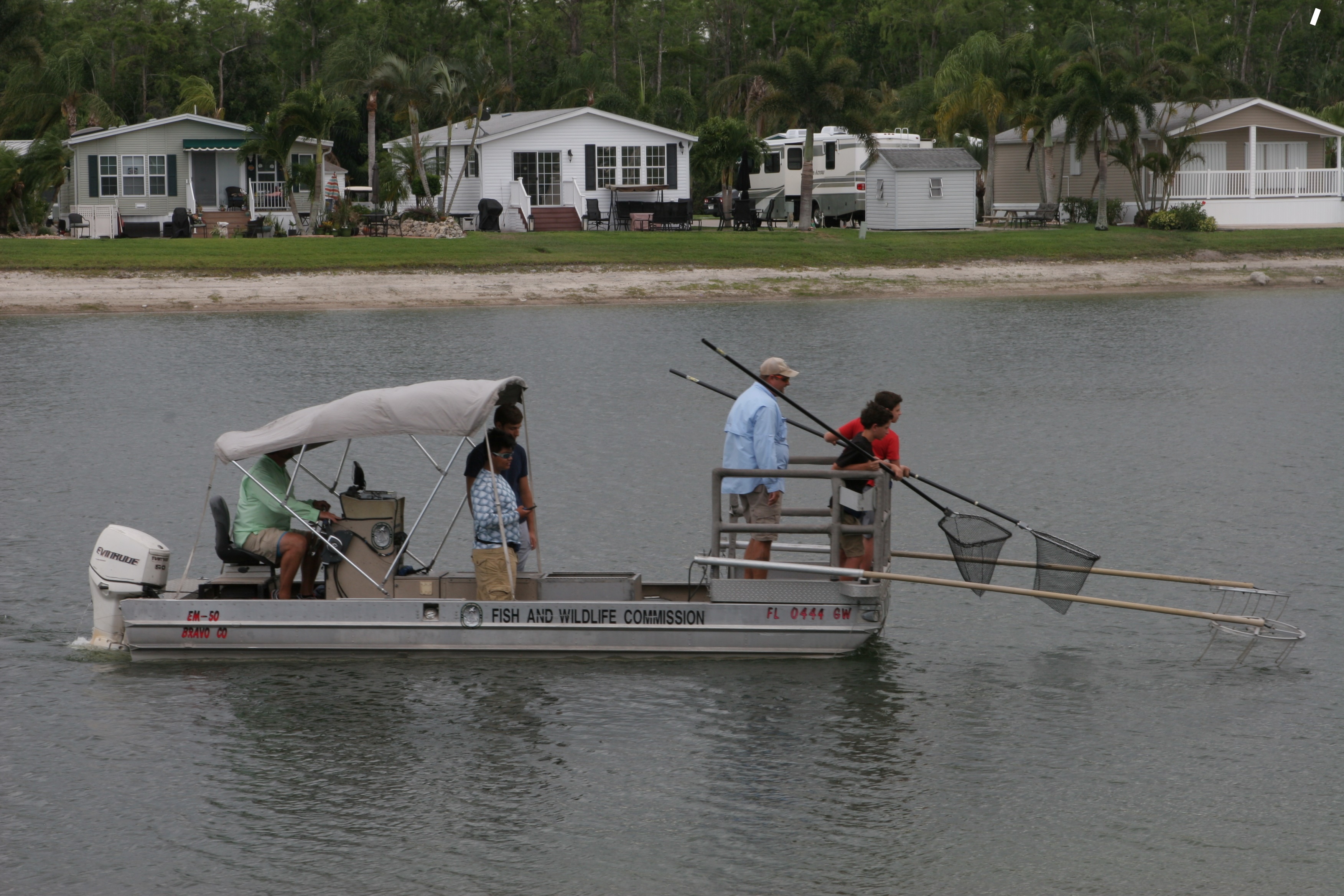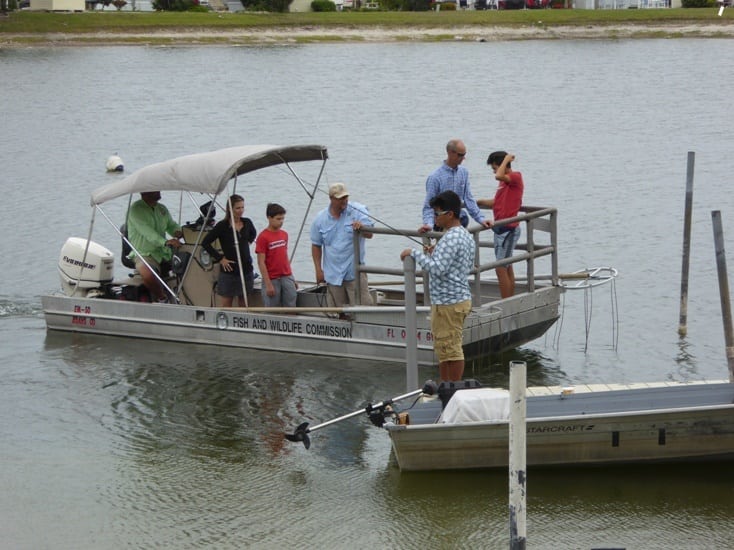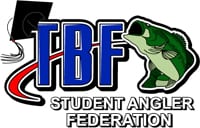C rystal Lake RV Resort in Naples, Fla., recently hosted a day of Electro-fishing with Florida Fish and Wildlife and the Gulf Coast High School Bass Fishing Team on the resorts beautiful 60-acre lake in North Naples.
rystal Lake RV Resort in Naples, Fla., recently hosted a day of Electro-fishing with Florida Fish and Wildlife and the Gulf Coast High School Bass Fishing Team on the resorts beautiful 60-acre lake in North Naples.
The project was part of an educational venture between the Student Angler Federation (SAF), which operates the largest High School Fishing program in the country and the FWC to get more students involved in not only the sport of fishing but also the science of how and why lakes and ponds are managed by state agencies.
Fifteen students from GCHS led by team coach, Heather Thornton, participated. Along with officers Matt Stevens and Adrian Stanfill from Lakeland, Fla., who operated the Electro-fishing boat for the FWC.
 Students were up close and personal with the entire sampling process as officers explained how a generator was used to pass an electrical current between two posts extending out into the water in front of the boat as it travels along the shoreline. Any fish that gets in between the electrical field created by this process is temporarily stunned and comes to the surface. Students were then able to scoop up the disabled fish with a net as the FWC officers identified, weighed and measured each fish. Once the data is recorded the fish are returned to the water away from the current field where they will swim away unharmed.
Students were up close and personal with the entire sampling process as officers explained how a generator was used to pass an electrical current between two posts extending out into the water in front of the boat as it travels along the shoreline. Any fish that gets in between the electrical field created by this process is temporarily stunned and comes to the surface. Students were then able to scoop up the disabled fish with a net as the FWC officers identified, weighed and measured each fish. Once the data is recorded the fish are returned to the water away from the current field where they will swim away unharmed.
 A representative sample was then created of the distance covered by the boat and the amount of time it took to cover that area. This method allows the FWC to create a sample population of how many and what type of fish are actually in the lake. Depending on the condition of the fish, they can also determine the health of the fish population and then make recommendations on how the fish population can be improved. Suggestions like the introduction of forage fish (fish that other fish like Largemouth Bass can eat), as well as, recommendations on the addition of nursery habitat structures that will protect small fish from being eaten by the larger ones are usually the outcome of such a survey.
A representative sample was then created of the distance covered by the boat and the amount of time it took to cover that area. This method allows the FWC to create a sample population of how many and what type of fish are actually in the lake. Depending on the condition of the fish, they can also determine the health of the fish population and then make recommendations on how the fish population can be improved. Suggestions like the introduction of forage fish (fish that other fish like Largemouth Bass can eat), as well as, recommendations on the addition of nursery habitat structures that will protect small fish from being eaten by the larger ones are usually the outcome of such a survey.
“Elector-fishing was really interesting and I learned a lot about the science and biology of the fish,” GCHS sophomore and participant, Simon Burgham, said.
Team coach Thorton added “Each of the students remarked that electro-fishing is something that they always wanted to see and that they were very excited to participate in,” Team Coach, Thorton, said. “We are all grateful for a memorable field experience.”
Also joining the FWC staff was the Chief of Fresh Water Fisheries, Tom Champeau. “The excitement, enthusiasm and leadership of the Gulf Coast High School Fishing club will attract many students to the sport of fishing as well as develop their passion for conservation,” Champeau commented.
Partnership efforts like these give students, as well as, the community members of Crystal Lake a better appreciation of how FWC uses fact and science to make many of their decisions on how to manage waterways and lakes within the state. In this case, the community at Crystal Lake will take the recommendations provided by the FWC and form an action plan to improve the fish populations in their lake, ergo increasing fishing opportunities. Special thanks to Chief Champeau, and officers Stanfill and Stevens for their efforts in educating everyone involved.
Students interested in learning more about High School fishing can go to www.highschoolfishing.org to see a host of exciting opportunities available in every state.




